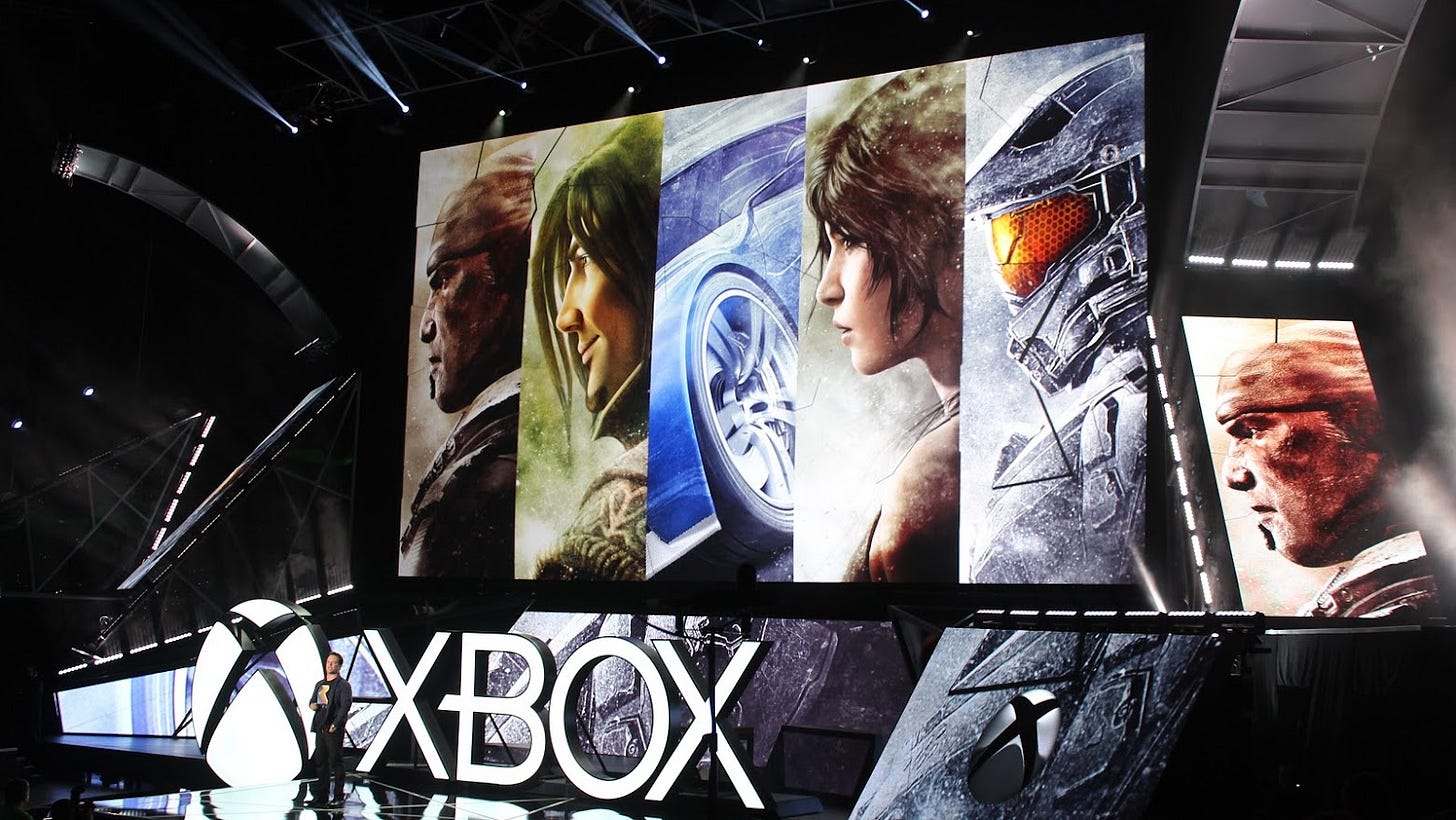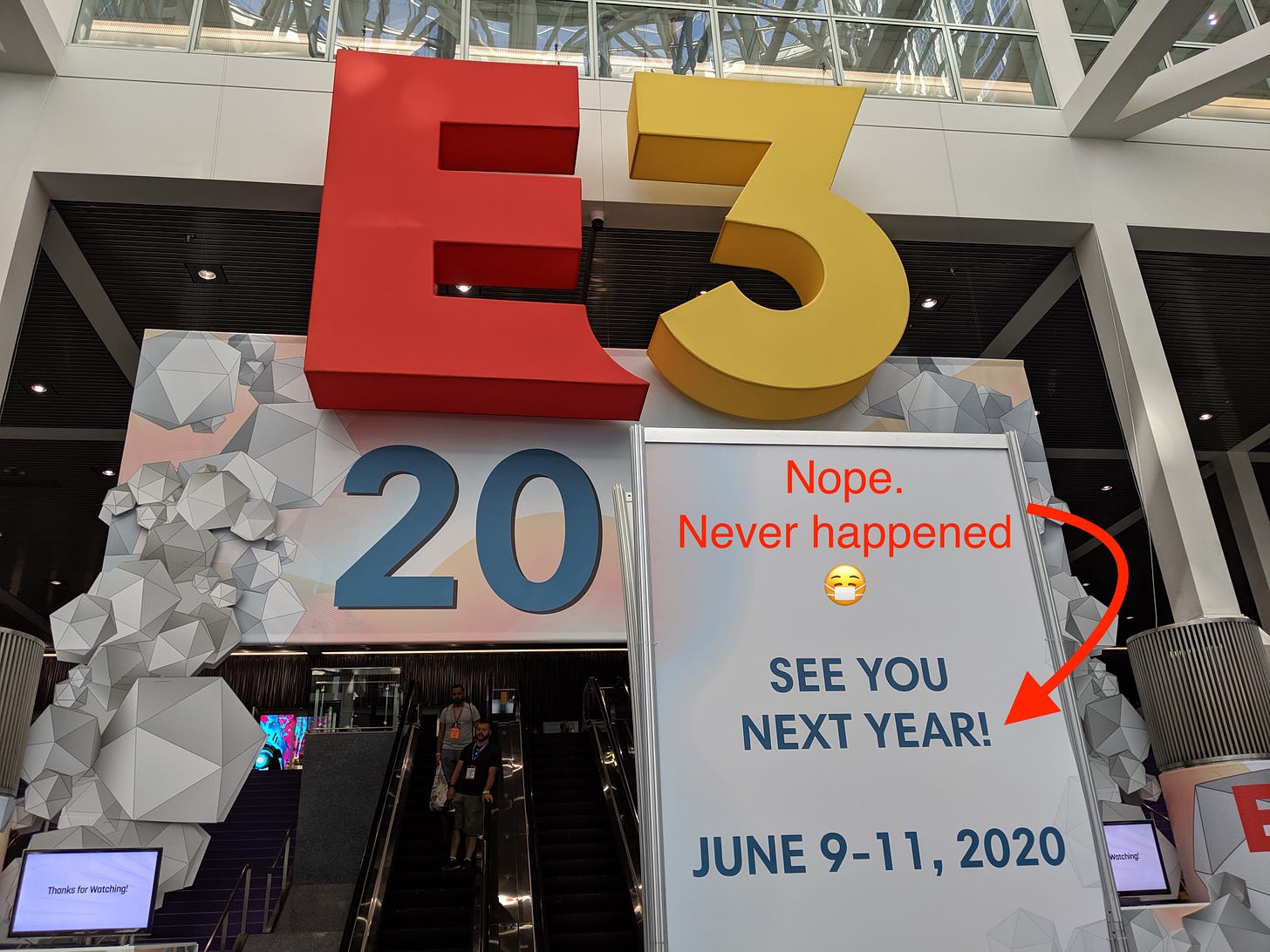3 reasons E3 2023 is canceled – and it begins with Apple
Hot take: After 20 years of going to the Electronics Entertainment Expo, I explain the industry trends that led to the fall of the once iconic E3
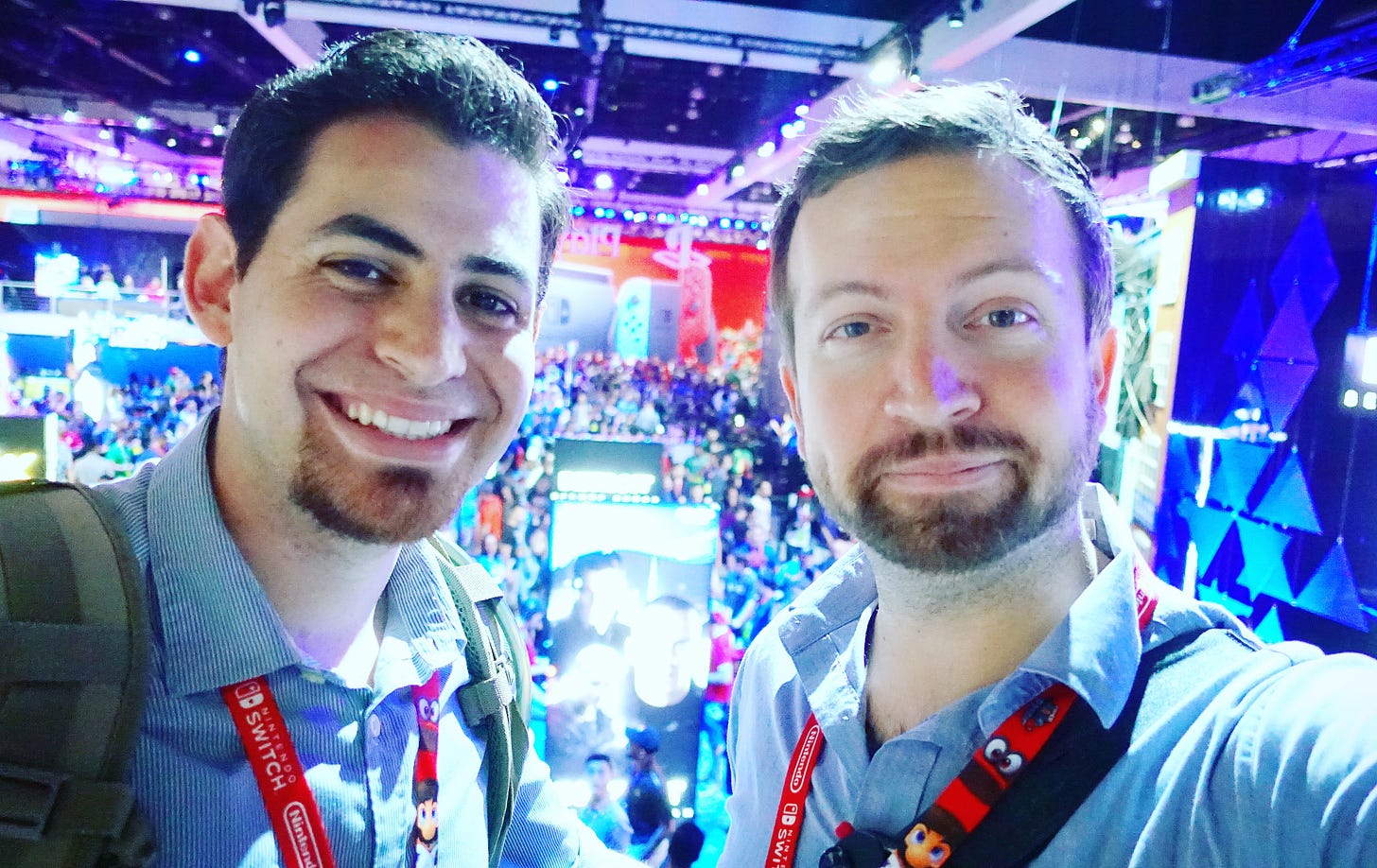
E3 2023 is officially canceled, meaning the biggest trade show for video games – the Electronics Entertainment Expo – won’t happen as planned in Los Angeles this June. It’s a sad day for nostalgic video game expo fans, but not unexpected news.
Let’s rewind on E3 – just a bit – to see what the younger generation is missing out on.
My first E3 was 20 years ago – and it was wild
I attended my very first E3 exactly 20 years ago – E3 2003. Back then, I was excited: Halo 2 was playable for the first time, Half-Life 2 was shown to select press and Sony’s PlayStation Portable was announced on stage. I got to witness it all in person. There was almost too much news to cover for a cub video game reporter who just graduated high school. The games were only outshined by the glitz.
E3 was an absolute spectacle despite being an industry-only event: you walked into one of the giant Los Angeles Convention Center halls and there was Marvel Comics icon Stan Lee signing autographs to promote Spider-Man 2 (the one on PlayStation 2, this old gamer will remind you), daring skateboarders doing tricks on a massive half-pipe to promote Tony Hawk’s Underground, and mean-looking WWII cosplay soldiers (mean-looking, but happy to take a selfie before they were called selfies) marketing the then-unknown game Call of Duty – and that was just at the Activision booth.
I wish I had more evidence of my first E3, but my photo-only digital camera captured the smallest picture resolutions and it didn’t keep a charge for very long. We were still four years from the original iPhone and there was no iCloud or Google Photos to easily back things up. I don’t think I had to lug around a laptop – because nobody at E3 had one back then.
I do remember my first E3 party, though. I got an invite to “the Sony party” and I walked up to a parking lot thinking they hired a garage band. Cute. Turns out it was the Foo Fighters. And, because teenagers weren’t common at E3 back then, no one ID’d my friend and me (I wasn’t allowed to travel from Philadelphia to LA alone).
Fast-forward 20 years and E3 became more regulated, less surprising and irrelevant, and it all started with major video game companies eyeing Apple’s event strategy.
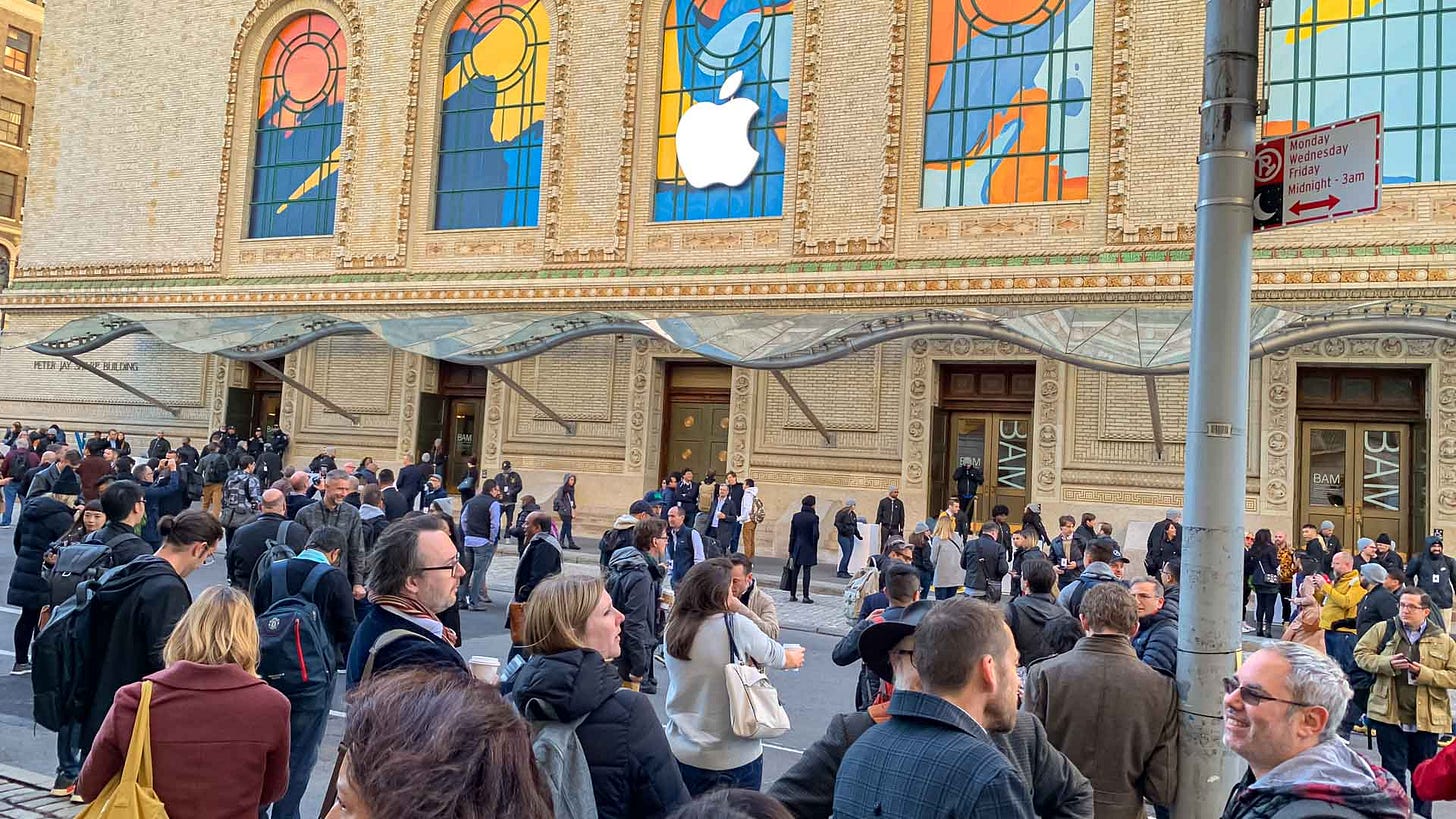
1. The Apple effect on E3 🍎
When there’s an Apple event, you know about it – just look at the news about its upcoming WWDC 2023 keynote. Apple has its own press conference, it controls the message and it’s the only one to hog the spotlight. Over the years, I’ve talked to many tech industry heads who saw that concept as the better way to present their products.
Samsung, in a similar way, used to have a big, expensive MWC press conference in Barcelona where it annually announced its new flagship smartphone. But look at the Samsung Galaxy S23 Ultra and Galaxy Z Fold 4 – those phones were announced at Samsung events in person and online. It was Samsung day, not a brief one-hour-long session in which Samsung shared the spotlight with LG, OnePlus and other Android mobile manufacturers.
So the beginning of the end for E3 happened in 2008 when Activision Blizzard pulled out of the ESA (the organization that ran E3), and the trend continued in 2013 when Nintendo opted not to have its traditional pre-E3 press conference (but still remained on the show floor). In 2016, Electronic Arts hosted its own EA Play venue instead of setting up shop on the E3 show floor, and in 2019 (the last in-person E3, little did we know), Sony PlayStation and Microsoft exited the show floor completely. Everyone wanted to have their own press conference on their terms instead.
🧠 Fun fact: the first E3 in 1995 spawned from CES and the lack of attention video game companies got from the wider electronics trade show in prior years – they were always positioned in the back of the Las Vegas expo, according to The Washington Post (this pre-dates me and Shannon Liao has a good story of E3’s origins). Now individual companies – feeling too big for E3 – have similarly splintered from the dedicated video game expo to do their own thing.
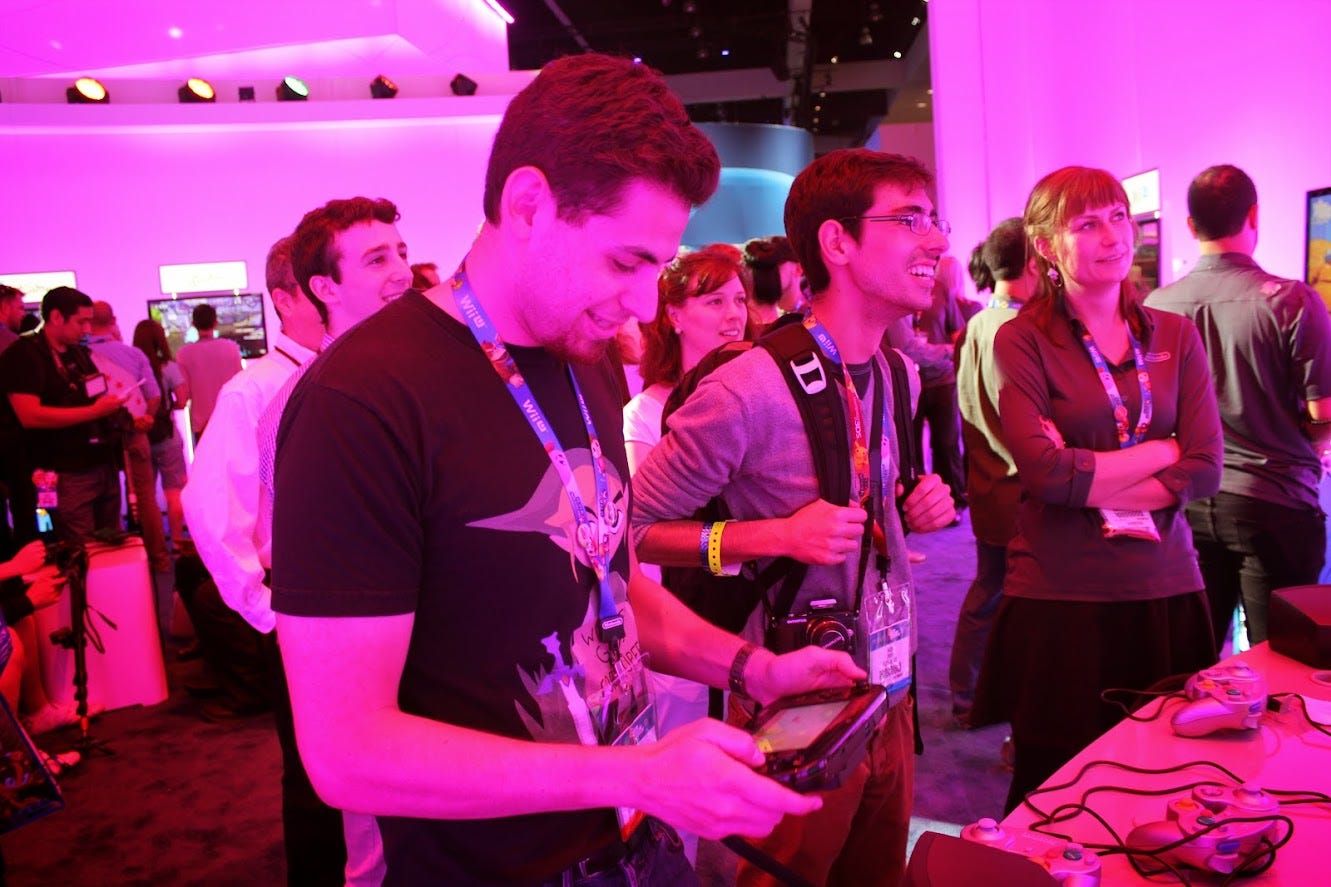
2. Online direct-to-consumer sure beats VHS 📼
When E3 started in 1995, Nintendo’s best way of reaching consumers directly was to mail them a promotional VHS tape of its upcoming games. So E3 remained important to cater to video game retail shops – there were many back then including Electronics Boutique, Software Etc., FuncoLand, Babbage’s and hundreds of independent stores. Good placement in brick-and-mortar stores was important, and so was a cover story in Electronics Gaming Monthly, EGM2, Game Informer and GamePro.
Now, however, Sony has led the way in cutting out everything I just mentioned – retail stores and tech publications that have survived are no longer needed so desperately. Sony owns the PlayStation Store to deliver games digitally on the PS5 and it has its own message-controlled PlayStation Blog (where you’ll find out “this game is now coming out next February” instead of the real truth: it’s delayed and in trouble).
Case in point, you won’t find the PSVR 2 headset at Walmart, GameStop and Best Buy – it’s being sold on its own PlayStation Direct site (although weak PSVR 2 sales aren’t a great testament to this strategy for new hardware). The news of PSVR 2? It broke on PlayStation’s blog, and that’s where the first unboxing happened. Likewise, Microsoft is all in on its Netflix-like Xbox Game Pass Ultimate on-demand service.
🤔 The thinking: if the top video game hardware manufacturers and game publishers can deliver interactive demos to passionate fans directly, why would they ever only appeal to a small number of video game retailers and journalists again? Just like Nintendo’s direct-to-consumer VHS idea came to an end, these groups’ days are numbered.
3. Maximizing profit vs E3 spend 💰
There was no better time to cancel E3 – almost every tech company is having layoffs, banks are failing and everyone’s budgets have been slashed.
So E3 becomes an easy line item to cross off when you consider the idea of spending millions of dollars on an elaborate booth and sending your team to E3 (overpriced LA hotels, airfare and food). Smaller launch events in which you have ownership or, even cheaper, online events that are a fraction of the cost make a ton of sense.
Just don’t expect the savings to be passed on to you. Video game companies are charging $70 for most triple-A titles these days and inventing new collector’s editions in which they can increase their profits. E3 is just a causality of shoring up their bottom line, not companies looking out for cash-strapped consumers.
Is this the end of E3? Or to be continued… 👾
E3 has been canceled for 2023, but the ESA hasn’t ruled out bringing back the video game convention in the future. There are smaller publishers that can’t stand up their own events quite like Sony, Nintendo and Microsoft can. And while industry drama-seekers are almost gleefully cheering on the demise of E3, as time goes on, nostalgia for the old Electronics Entertainment Expo may grow. When the economy is in better shape, E3 stands an outside chance of being reborn.
I’ll miss attending the over-the-top in-person spectacle, trying out the newest video games months and sometimes years before they release, and meeting like-minded gamers in the flesh. These things made E3 so easy to love. But, honestly, it’s too easy to skip the travel headaches and budgeting nightmares that came with being there in person. Instead, downloading a demo of a developer’s game for preview seems so much easier while never leaving my sofa. 🛋️



